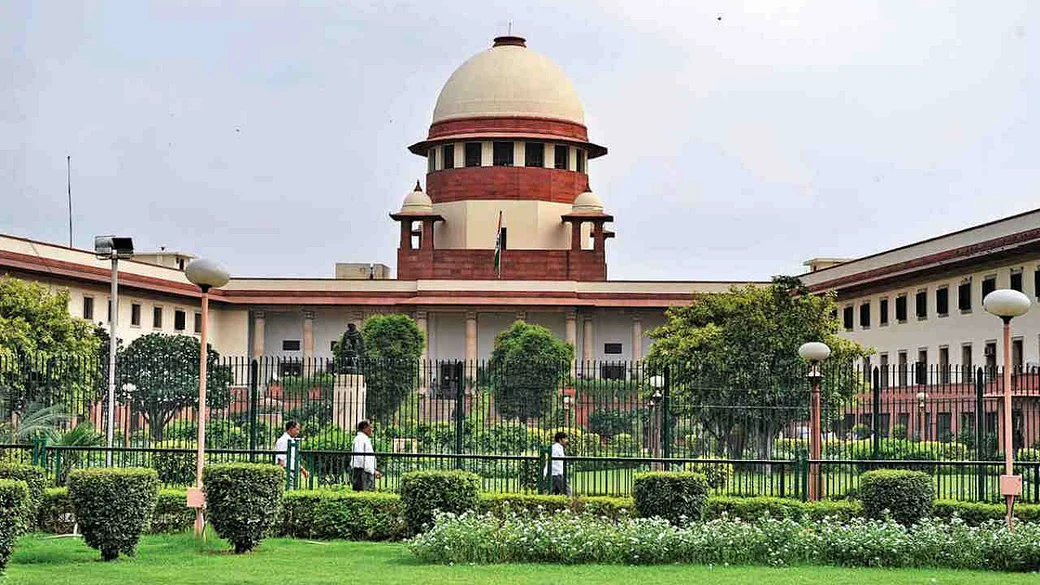Sakunjay Vyas
Published on: April 20, 2022 at 10:18 IST
The two Judge Bench of Justice Vineet Saran and Justice Aniruddha Bose of the Supreme Court overturned a common judgement and order passed by the Securities Appellate Tribunal, wherein the Tribunal dismissed the Appeals filed by the Appellants herein and upheld the order passed by the Whole Time Member of Securities and Exchange Board of India.
The Supreme Court recently ruled that from the investigative stage to appeal/revision period, the victim is entitled to be heard at every stage.
The two Judge Bench of Justice Vineet Saran and Justice Aniruddha Bose was hearing an appeal against a common judgement and order passed by the Securities Appellate Tribunal, wherein the Tribunal dismissed the Appeals filed by the Appellants herein and upheld the order passed by the Whole Time Member of Securities and Exchange Board of India.
The Bench, while hearing the plea stated two important findings that need to be re-examined in order to adequately decide the present matter in hand,
Firstly, Whether the WTM and SAT rightly rejected the claim of estrangement of the appellants?
Secondly, could the aforementioned appellants be rightly held to be “insiders” in terms of Regulation 2(1)(g)(ii) of the PIT Regulations, only and entirely on the basis of circumstantial evidence?
The Apex Court after analyzing the facts and evidence in hand stated that the family in question had a breakdown both personally and professionally long before the two UPSI.
The estrangement of the family relations was confirmed by either sides of the family and thereby this clearly states that the appellant’s claim of the estrangement of family was not rightly rejected by the SAT and WTM.
“Hence, we are of the opinion that when the two family arrangements (dated 01.07.2011 and 10.04.2015) are considered in their right perspective, it adequately demonstrates that there was a breakdown of relations between the parties.“, the Court said.
The Apex Court stated that further the contention of the appellants to be insider in insider trading were based on the relations they had with the family and since that has been clearly stated that the estrangement occurred way before the two UPSI, hence appellants cannot be considered as connected persons or immediate relatives.
“ it has been rightly held by the WTM that the appellants are neither “connected persons” within the meaning of Regulation 2(1)(d) nor “immediate relatives” within the meaning of Regulation 2(1)(f) of PIT Regulation, the question of ipso facto relying on the nature of relationship between the parties to come to the conclusion that they were “in possession of or having access to UPSI” while trading with the shares of the company is legally unsustainable.”, the Court said.
The Apex Court was of the opinion that there is no correlation between the UPSI and the sale of shares undertaken by the appellants in C.A. No.7590 of 2021. The said decisions of selling the shares and the timings thereof were purely a personal and commercial decision undertaken by them and nothing more can be read into those decisions.
That in the absence of any material available on record to show frequent communication between the parties, there could not have been a presumption of communication of UPSI by the appellant Balram Garg.
That the Apex Court further stated that that As a First Appellate Court, the Appellate Tribunal was required to conduct an independent assessment of the evidence and material on record, which it evidently failed to do.
“The Appellate Tribunal was exercising jurisdiction of a First Appellate Court and was bound to independently assess the evidenced and material on record, which it evidently failed to do.” The Court said
As a result, the Apex Court overturned overturned a common judgement and order passed by the Securities Appellate Tribunal, wherein the Tribunal dismissed the Appeals filed by the Appellants herein and upheld the order passed by the Whole Time Member of Securities and Exchange Board of India by stating that in our opinion, the SAT order suffers from non application of mind and the same is a mere repetition of facts stated by the WTM.

